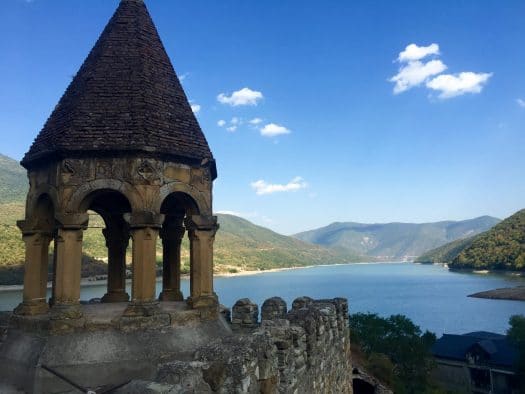“Travel is the most intense mode of learning”- Kevin Kelly, executive editor of Wired magazine
Eight months ago, my year of studying abroad began. I arrived in Tbilisi, Georgia as part of the Policy and Conflict in the Post-Soviet Space (PCON) program. Over the course of the following fall semester, I travelled all across Georgia, Armenia, Ukraine, and Moldova. I then transferred to another SRAS program, Society, Business, and the Arts (SBA) in St. Petersburg, Russia. Now, as the end of my spring semester in Russia is fast approaching, it’s nice to reflect back on how all of this travel contributed to the cultural interactions and learning experiences I’ve had this academic year.
The majority of my time in higher education has been dedicated to studying the history and current dynamic of the post-Soviet space. With familial ties to Eastern Europe and a fond appreciation for the varying cultures across the region, choosing my academic focus was an easy task. My profound interest in the region is what urged me to study abroad for a year in Kiev, Ukraine (PCON), and St. Petersburg, Russia (SBA). These two programs offer an opportunity to obtain a knowledge that far surpasses a classroom lesson.
The PCON program specifically focused on the unique political and socioeconomic dynamics of Georgia, Armenia, Moldova, and Ukraine. I wasn’t fluently versed in the details of these topics; however, looking back, I’m glad I wasn’t. I found myself traveling around these countries, listening to people’s stories, and observing my surroundings with a much more open and absorbent mind. I was able to take in varying opinions and personal stories, and then process the information with a more genuine understanding of their situations. Each country I travelled to presented me with different obstacles, both mental and physical, and there were certainly times of frustration and confusion. I now realize that every awkward, embarrassing, and even discouraging occurrence I encountered made my time travelling that much more impactful.
Georgia
I spent just two weeks in Georgia, but I can confidently say that I have seen more of that country than I have of my home state. The two weeks of non-stop travelling from town to town was full of excursions, meetings with locals and various lecturers, and some of the best cuisine I’ve ever had. There are several key moments and feelings I remember having in this country. Firstly, this was the first time I truly felt like a foreigner. I had traveled overseas once before this trip, but I never understood the feeling of sticking out in a crowd. It was clear that I was not from Georgia, which resulted in staring at times, but never did I feel unsafe.
Secondly, hospitality is a large and very important part of the Georgian culture. We stayed in different cities, towns, and villages throughout Georgia, but the hospitality was consistent everywhere we went. From the fifteen-year-old boy who took us mountain hiking to the many hosts who fed us plentifully, my time with the Georgian people was nothing but warm and welcoming. I also found the locals to be very curious about my studies, travels, and life in the US, and sometimes the locals were very blunt with their questioning. I’ve received a variety of very direct questions regarding topics such as obesity, racism, and even the “decaying morality of the American people.” Regardless of the sometimes awkward conversations, most locals were as eager to learn from us as we were to learn from them.
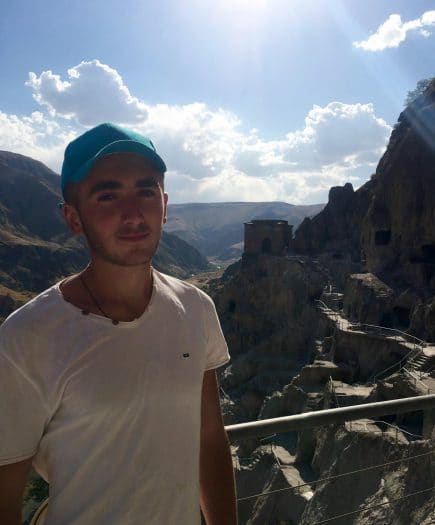
Out of all the amazing experiences I had while exploring the country, the single most prominent thing I will remember about Georgia is witnessing the variety of political perspectives I received during the guest lectures. Some of my lectures included meetings with journalists, local political figures, and academic professionals. The views and beliefs of each of these lecturers were completely different; the political conversation in Georgia was open and diverse. There were times I found myself questioning the logic or the basis of an argument, but respecting it nonetheless. The meetings that were held with locals shed an authentic spotlight on economic standards, social movements, and the overall norms of society.
Armenia
My group spent one week in Armenia, and it was just as packed as the Georgia schedule. The overall visit was oriented towards understanding the Nagorno-Karabakh conflict, a territorial dispute between Armenia and Azerbaijan. We met with several people who witnessed periodic confrontation and people who’ve built their lives around trying to resolve the issue.
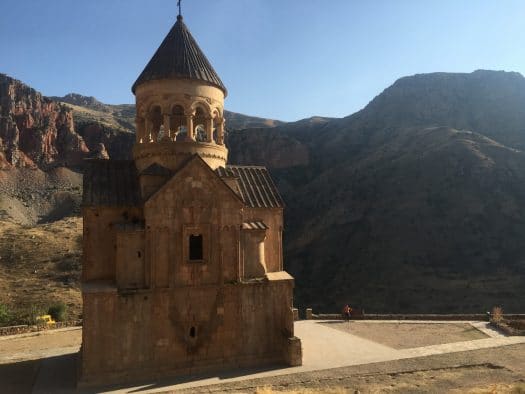
What I found to be the most interesting was learning about Armenia’s economic affairs and observing the day-to-day lives of the locals. The first thing I noticed when arriving in Yerevan was how impeccably dressed everyone was. Yerevan itself is quite a beautiful place and appeared to be a thriving, wealthy city. For this reason, I found it interesting to learn that the national economy fluctuates regularly, and the country as a whole has a large socio economic imbalance. This became evident when we toured smaller towns and villages outside of Yerevan.
Moldova
I spent the least amount of time in Moldova, but still was able to absorb quite a bit of insight. Chisinau, the capital of Moldova, is a very comparatively small and slow-paced city. The city was almost completely destroyed during World War II, so most of the architecture and installations are fairly new, historically speaking, and were built by the Soviets.
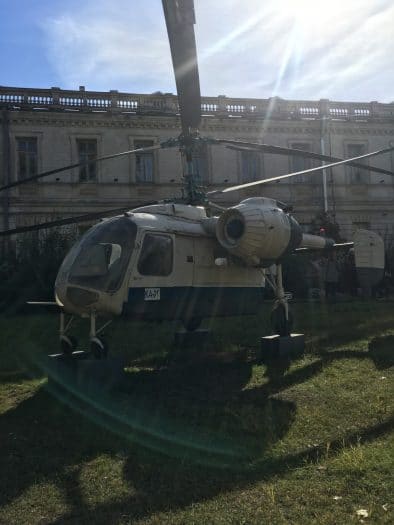
The most underrated quality of Moldova is their wine. Many families produce their own homemade wine, and some even have cellars for aging spirits year round. One particularly interesting thing I noticed was that it is customary in the Moldovan culture for the men to always choose the type of wine the women drink. This was once common in most Western cultures, but has quietly become rarer as our society has changed. If Chisinau strikes one architecturally as a Soviet time capsule, this is an example of an even older preservation.
Ukraine
For the majority of the fall semester, I lived and studied in Kyiv, Ukraine. I stayed with a lovely host family who welcomed me and cared for me from the very beginning. Acclimating to the new environment was something that I feel I handled quite well, but there were of course moments of culture shock. Before going to Kyiv, I had done a large amount of research over the economic state of the country, the political climate, and the overall living standards. After living there for a semester, I can honestly say that no amount of studying or researching could compare to the knowledge I gained just by being on the ground there. I witnessed multiple political protests, large social movements, as well as other effects that the current political and economic situation have had on the society. I also recognized similarities between the Ukrainian culture and other Eastern European countries, as well as traditions that are considered to be strictly Ukrainian. I had time to observe local religious practices, the strange superstitions that the babushkas strongly believe in, and the street bartering that is an unmistakable part of the Ukrainian culture.
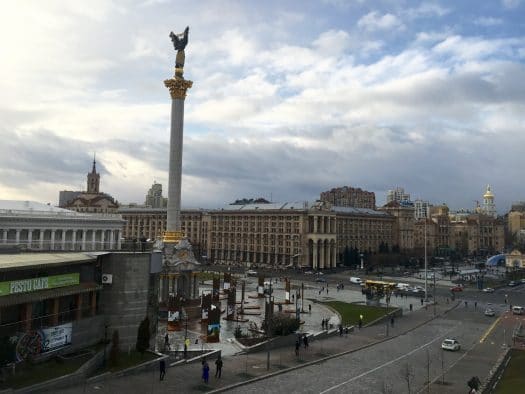
I genuinely loved my time in Ukraine, with all of the ups and downs that came along with it. I would have loved to have spent as much time in each of the countries that PCON visited as I spent in Ukraine, observing and learning in such detail over a longer term.
Overall, the PCON program gives insight that simply can’t be compared to any textbook or university course.
Russia
Arriving in St. Petersburg for the SBA program was both an intimidating yet exciting moment for me. I was nervous, slightly anxious, jet lagged, but most importantly, I was curious. Russia is often portrayed as this mystifying, daunting place full of bears, vodka, and snow. My curiosity was simple: What was true and what was false about this massive country?
I’m inclined to agree that Russia is both mystifying and daunting, but nonetheless, just as intriguing as I thought it was going to be. St. Petersburg itself is considered the “cultural capital” of the country, and I couldn’t be happier to be studying here. I’ve had the opportunity to have lunch with several locals, who shared with me the traditions of Russian hospitality. Arriving slightly late for dinner is perfectly acceptable in Russian culture, but you never come empty handed. You should also be prepared to eat, and then eat even more.
There have also been times when I’ve learned lessons the awkward way. I made the mistake of wishing an older lady a happy early birthday. According to local superstition, this brings bad luck (and shortens the lifespan) of the recipient of these early wishes. I learned that you should absolutely never do this. This is a perfect example of a cultural lesson I most likely would not have locked to memory in a classroom setting.
With regards to the current political climate, my time in Russia has been far less dramatic than many Americans might believe. There have certainly been moments of heightened diplomatic tensions in the previous months, but as a student, I’ve found that this merely allows for more interesting conversations with my fellow Russian classmates, who are curious about what I think and eager to discuss their own views in an atmosphere of mutual respect.
With two months left of my semester, there is still much to explore and enjoy. As of now, I can say that I have not seen a bear, and I have met plenty of people who never drink vodka – in fact, abstinence from alcohol is in fashion among many young people.
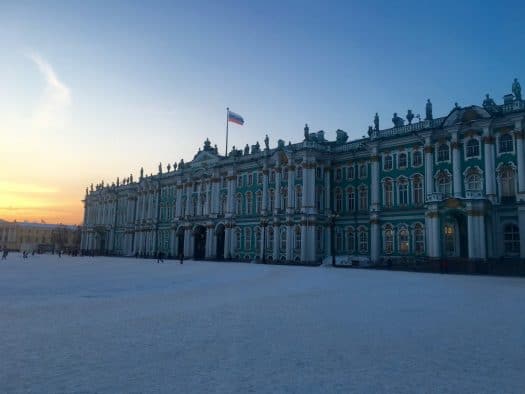
Overall, my time travelling is something I can only describe as the truest form of uncensored education. I get to witness the good, the bad, and everything in between. If I don’t enjoy what I’m seeing or hearing, it’s not as easy to ignore as simply closing a book or dismissing an article. Even when I’m relaxing from my studies, I am still observing and absorbing the dynamic of day-to-day life around me. All of the facts and bits of information I have accumulated throughout my studies suddenly are attached to the places I’ve been, the food I’ve eaten, and the people I’ve met along the way. My knowledge of the region is no longer one dimensional, but rather a complex mosaic of memories and conversations. This past year has proven to me that investing in travel is the most beneficial method of educational enlightenment.

